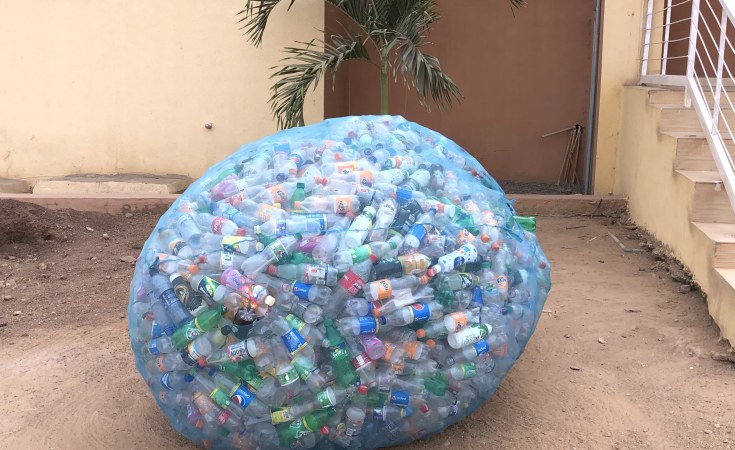Nairobi — In the outskirts of Kiambu County, we found a Kenyan start up Noma Green Plastics which has embarked on recycling plastic waste into eco-friendly fencing poles and outdoor furniture which are rot and termite proof.
Noma Green Plastics, having noticed the rapid environmental degradation due to the plastic waste came up with ways to turn it into tangible household products.
The biggest challenge in Kenya is solid waste management at a time when an estimated 2,400 solid waste is generated in Nairobi every day, 20 percent of it being plastic.
The company's founder Mugo Macharia reveals that in a day, they recycle 30 tons of plastic waste to make poles which are more durable and less harmful to the environment.
"We started in 2019 that's when we bought the machine but then we started operations in 2021 because it was a huge learning curve of how the poles are manufactured as well as getting the required licenses," he stated.
"It was coming for a place of wanting to give back to society because I spent most of my days in advertising and I wanted a change of pace to something of the most impact," he said.
It's a rigorous process that involves sourcing plastic raw material from both post-industrial, plastic waste from industries, and post-consumer, plastic waste from recyclers who aggregate waste disposed by consumers.
It's then cleaned using a metal spark to remove metals in the plastic waste as the machine creating the poles can't hold any metallic matter.
The plastic waste is shredded into small particles which are then melted and molded into plastic poles.
With the country grappling with deforestation and the required forest cover, Macharia emphasizes that plastic poles would be a viable solution as opposed to wooden poles.
"A lot of fencing poles are mostly wooden poles and a wooden pole means that was a tree 100 percent. If we are to have actual solutions to the problems that we are facing, especially plastics and climate change, then we need to take some of these things head on," Macharia stated.
"Plastic poles are termite proof, rot resistant, you will use normal nails the same as wood. It could have been plastic lying in a landfill. That's part of our impact, it's double headed, we are cleaning up the environment and giving you something that will substitute wood," he added.
Just like any other manufacturing business, this one comes at a cost despite the fact that it's a recycling business, it comes at a cost.
It's a business that requires collectors, sorters, manpower, machinery and the cost of electricity for manufacturing.
"Plastic waste does come at a cost; we don't get it for free. We need collectors and sorters for this kind of business. There is the cost of electricity and energy. You need manpower and machinery," he stated.
"Its manufacturing at the end of the day and manufacturing is not for the faint hearted. It's hard at times, but once we hit capacity some of these challenges will not be there," Macharia said.
The uptake of plastic poles was quite slow on the onset due to lack of awareness on how the pole works as compared to the traditional wooden pole.
"Once people know about it, the uptake is quite amazing. People come once they see it or have been referred by someone. If you haven't seen it, I get it's a hard concept to grasp. I like it that Kenyans are inquisitive and they want to be part of change," the Noma Plastics CEO said.
Recycling has been one of the commended ways of waste treatment that enables the country to achieve a reduction of waste but Macharia opines it's all about personal initiative.
"We need partnership and more people being incentivized to deal with waste. We are looking into expanding into more products including tiles and paving blocks. We need to view what we do more intentionally and that is why we started to reduce, reuse, recycle," Macharia pointed out.
"Use glasses more and if you can't reuse the plastic containers in your home and whatever falls of is what we want to recycle.
But even as Macharia strives to make a change in the environment, he says the initiative they are doing is a drop in the ocean compared to the amount of plastic waste disposed of daily.
"Plastic is a menace and a huge problem, if we don't take care of the plastic problem and take actionable steps it will swallow us. Plastic is a threat and offering solutions to that gives us the motivation to wake up," he said.
The non-feasibility of recycling plastic waste has been an open secret among plastics industry insiders with Noma Plastic trying to change the notion.


